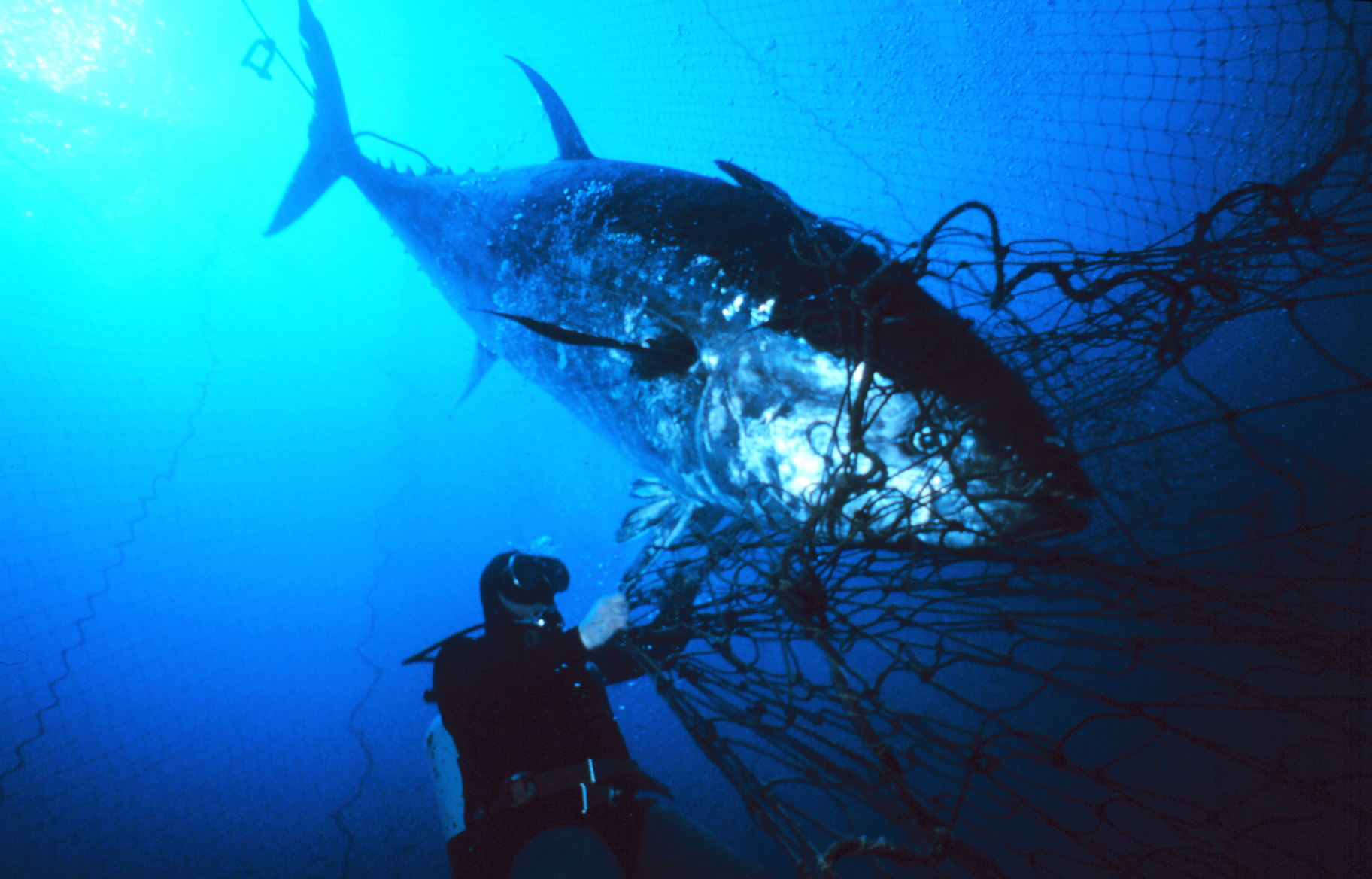
Imagine the traditional American image of father-son bonding–a lazy Sunday spent fishing down by the lake. Perhaps in your mind’s eye you see a rowboat, a shining sun, and a good conversation. But here’s a shocking statistic to wake you up from that pleasant picture: “more than 70 percent of the world’s fisheries are ‘fully exploited,’ ‘over exploited’ or ‘significantly depleted.’” All wild fish fleets now fall below natural levels. Since the rise of industrial fishing in the 1950’s, all tuna, marlin, cod, skate and flounder fishes have been depleted by 90%. What’s worse, levels of halibut, bluefin tuna, swordfish, haddock, and yellowtail flounder have dropped over the past decade to all-time lows; it is expected that fishes such as the Atlantic bluefin tuna will disappear completely in the upcoming years.
In theoretical and numerical terms, our oceans do not and cannot contain as many fish as would fulfill humans’ appetites; in fact, our population’s global fish intake exceeds the number of fish that can produce naturally. In fact, consumer demand rose in 2006 to over 8 times what it was in the 1950’s. It is estimated that the world will need an extra 37 million tons of farmed fish annually by 2030.
Marine ecologists think that the biggest threat to marine environments is over-fishing by humans. Fisheries have already begun to diminish. The main codfish fishery collapsed in 1992 and led to the loss of 40,000 jobs, demonstrating the dangerous fragility of our marine dependence. It is expected that cod stocks in the Baltic Sea and the North Sea will follow the collapse of this formerly-spectacular Canadian fishery.
Scientists also predict that the devastating reduction of top predator fish (our your favorites to eat) will shift the entire ecosystem of oceans in such a way that commercially-valuable fish will be replaced by small, plankton-feeding fish and jellyfish. They warn that our drastic desires will change our oceans in many permanent ways: some of which we may not even understand yet.
Unfortunately, but not surprisingly, the fishing industry continues to ignore the extremely fragile state of the Atlantic Ocean, diverting the problem instead to the slightly-less-depleted Pacific Ocean. The lack of surprise at this astonishing event should trigger a troubling reaction, if facts and research don’t. The future of our planet’s largest and most diverse biome is on the line, and therefore we are all in danger.


Be First to Comment